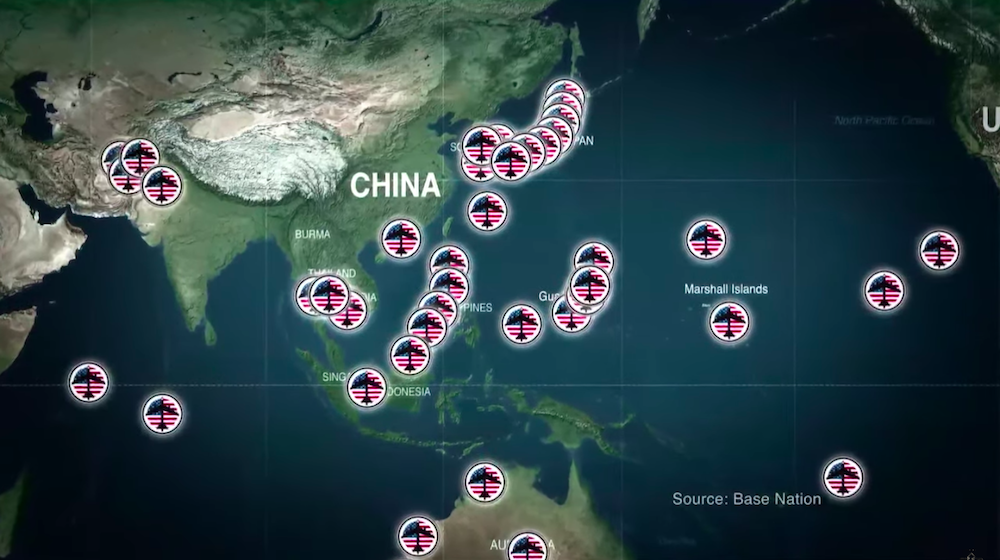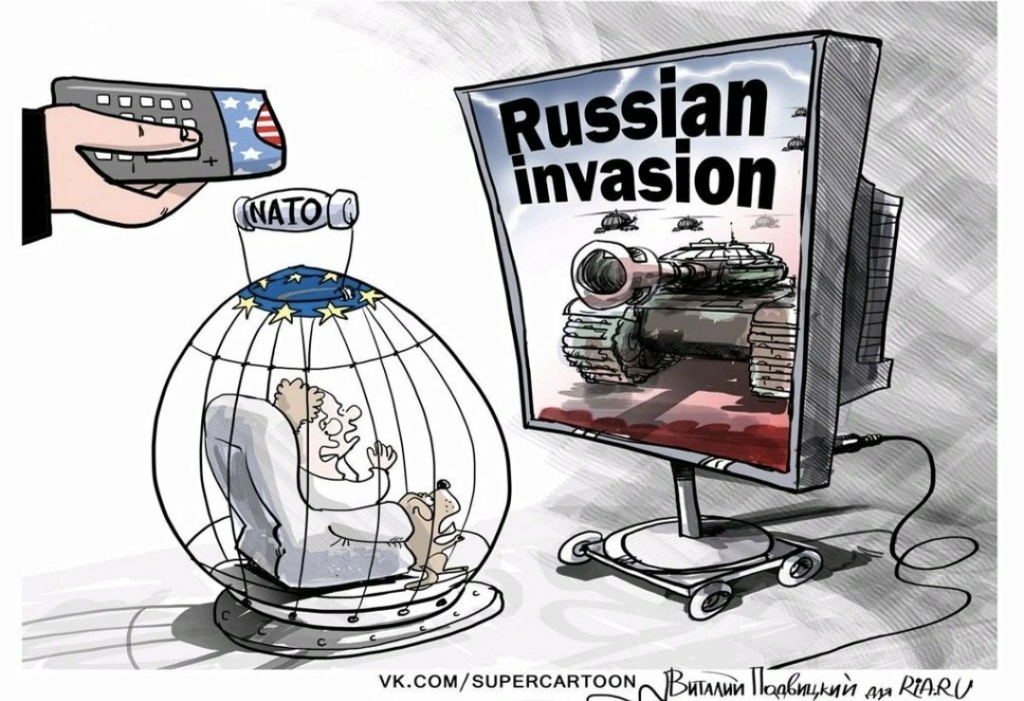2021-the year of Russia without war
Rostislav Ishchenko
30.12.2021, 08:55Exclusive
Russia has lived another year without a war. Counting from 2014, this is already the eighth year, but if we count from 2008, when the United States first tried to organize an "Afghanistan" for Russia in Georgia on the near approaches, it is already the fourteenth year
During this time, Russia has grown stronger, armed itself, formed an informal but very effective alliance with China, implemented most of the import substitution program, and redirected a significant part of its critical exports from Europe to Asia.
The transformation is far from complete. Russia has militarily defeated all potential opponents without a war: in terms of modern weapons, they are at least 10 years behind Moscow (the closest pursuers), or even twenty or thirty years (those who still hope to create something similar), and most of them are forever (simply because they do not even conduct research in the field of hypersound and deep-sea attack drones, not to mention designing promising models of such weapons).
But the Americans are still trying to draw with Russia economically. No longer hoping to break the self-sufficient Russian economy, they are trying to marginalize Russia and its few allies and keep most of the planet under their economic control. Since they cannot beat Moscow in the purely economic sphere — as already mentioned, the Russian economy is self-sufficient and is capable not only of producing everything necessary under the conditions of a total American blockade, but also of displacing American products from world markets — the economic war against Russia had to be waged by non-economic methods.
More than once, the US plans described by us and not by us were simple and effective: to organize a relatively large regional conflict involving Russia and those of its allies who are not sorry for it, to declare Moscow an incompetent aggressor, and to organize a political and economic blockade of it with the support of the still remaining majority on the world stage (see voting in the UN General Assembly on resolutions condemning Russia for something). Thus, the United States planned to keep more than two-thirds of the world's states under its control, abandoning in favor of Russia and China what was already lost, as well as what they could seize during the regional war provoked by the United States.
The territorial increments of Moscow and Beijing as a result of the war could not be large — the available resource base and the need to invest in the development of existing territories did not allow us to master too large acquisitions. So the United States expected to go into economic isolation, getting off with little (and someone else's) blood, with a good piece of the planet to boot. If for the American state this only prolonged the agony, then the current elites could count on the safety margin of the current American system to be enough for their lives.
Perhaps, if the question had been put squarely ten years ago, Russia would have agreed to such a division of the world. It was unprofitable for it and led to serious financial and economic losses for two or three decades (the time of the agony of the American empire and the first, most difficult stage of the recovery period after its fall). But in the end, during the lifetime of both the current and the next generation, the United States still suffered a world-historic geopolitical defeat.
However, over the past decade and a half since the beginning of the open confrontation, Russia has seriously strengthened militarily. As far as I understand, this year it was decided that starting a game of raising the stakes by Moscow (so far only the West has raised them first, Russia has exclusively accepted the challenge) will be more productive and less resource-intensive than agreeing that before its final death, the United States will ruin 2/3 of the planet to the state of Ukraine (which will then need to be restored).
In any case, in the spring of this year, the West was faced with an unexpectedly sharp response from Russia to traditional provocations in Ukraine. For some time, the West believed that Moscow was bluffing and the situation was teetering on the verge of nuclear war. The military danger peaked in May, but by the beginning of June, the West had come to its senses, realized that it was not being trifled with, and switched to a strategy of negotiating about nothing, delaying time and trying to develop an effective response to Russia's geopolitical innovation.
At the same time, attempts to organize a large-scale conflict on the borders of Russia, in which Moscow's participation would have become inevitable, have intensified. The range of provocations expanded and by August included not only Ukraine, but also Belarus. If successful, the United States was ready to set fire to the entire arc: from the Baltic to the Black Sea and then through Transcaucasia to the Caspian Sea.
The Kremlin's response was a December ultimatum. The stakes were raised again. The United States was offered no options to accept the Russian proposal or prepare for the worst. Initially, Washington reacted to this threat quite calmly, hoping that the" worst " would begin in Ukraine, which the United States is quite happy with. But the subsequent statements of the Ministry of Foreign Affairs, the Ministry of Defense and the Kremlin, as well as demonstrative tests of new weapons (including the Zircon hypersonic missile), clearly intended not for war with Ukraine or any other Eastern European Burkina Faso, but clearly aimed at nullifying the US military power, showed that Moscow's threats are only secondarily related to Eastern European American vassals and protectorates, first of all,
Russia does not plan to wage a protracted war with serfs, it threatens its masters. Motivation for this behavior statedPeskov in an interviewSolovyov: "We have been deceived for twenty years." In fact, they cheated for longer, all thirty or even forty years, but it seems that the current Russian government does not turn to hoary antiquity, but relies only on relations with the West, which were built during the reign of the current president.
Now, according to the Kremlin's logic, since we, naive and gullible, have been deceived for twenty years, then we need to win back the situation for the period before the beginning of these deceptions. The Russian Foreign Ministry in its ultimatum outlined the situation as of 1997 as a line to which the West must retreat in order for Russia to agree that justice has been restored and its vital interests are not under immediate threat.
This is the answer not only to the United States, but also to all those who were puzzled to ask how it turns out that they, so smart (and the whole world with them) see that Russia is being deceived, and only the naive Kremlin does not notice. I've always said that if you can't get the cheater to return to his original position (and punish him at the same time), then it's better to pretend that you don't see the deception and gather forces to restore justice later. Otherwise, the cries of the deceived but helpless will look comical and only further undermine their prestige.
Russia bided its time, gathered its forces, and "saw" the deception. Now she demands to return everything as it was, threatening the deceiver with violence. It is no coincidence that Moscow constantly emphasizes that there are Western contingents on the territories of Ukraine and other Eastern European countries. After all, you can not capture Kiev and Vilnius, but simply strike, and not necessarily even with your own hands, at Western military personnel located in these territories (you never know where any "partisans" may appear).
Then the West will face a dilemma: squeak, cry, but suffer losses or threaten war with a militarily superior nuclear power in response to the actions of unidentified partisans in the territories of third countries.
Yes, you never know what other damage can be inflicted on "friends and partners", so that it seems that it is necessary to answer, and there is no one to answer, and it is terrible to attack Russia — it is not for nothing that Moscow checked the reaction of the West to the threat of a full-scale conflict with the potential use of all types of available weapons,
The West then "blinked", as a result, the entire second half of 2021 passed under the sign of Russian dominance, and with it the whole year became the year of the Russian diplomatic offensive.
It is easy to understand that the West will not just accept this situation. In 2022, he will try to take revenge for the diplomatic defeats of 2021. The first attempt will be made as early as January-the United States has previously proposed holding an expert-level meeting to discuss Russian proposals as early as January 12 and no later than the 20th of the same month. Their main task will be to get out from under the pressure of the Russian ultimatum and return to the traditional scheme of negotiations without result.
I wonder what move Russia has prepared for this case?
It should be understood that the Kremlin's position is also not so simple. The point of raising the stakes is not to unleash a nuclear war, but to prevent even a regional conflict, forcing the United States to continue to fight in a bad world, but in which the Americans are losing faster and do not have a good option for action.
Therefore, next year Russia will try to continue its victorious march along the razor's edge, and the United States will again try to lead it astray.
https://ukraina.ru/exclusive/20211230/1032973692.html




 lancelot
lancelot
